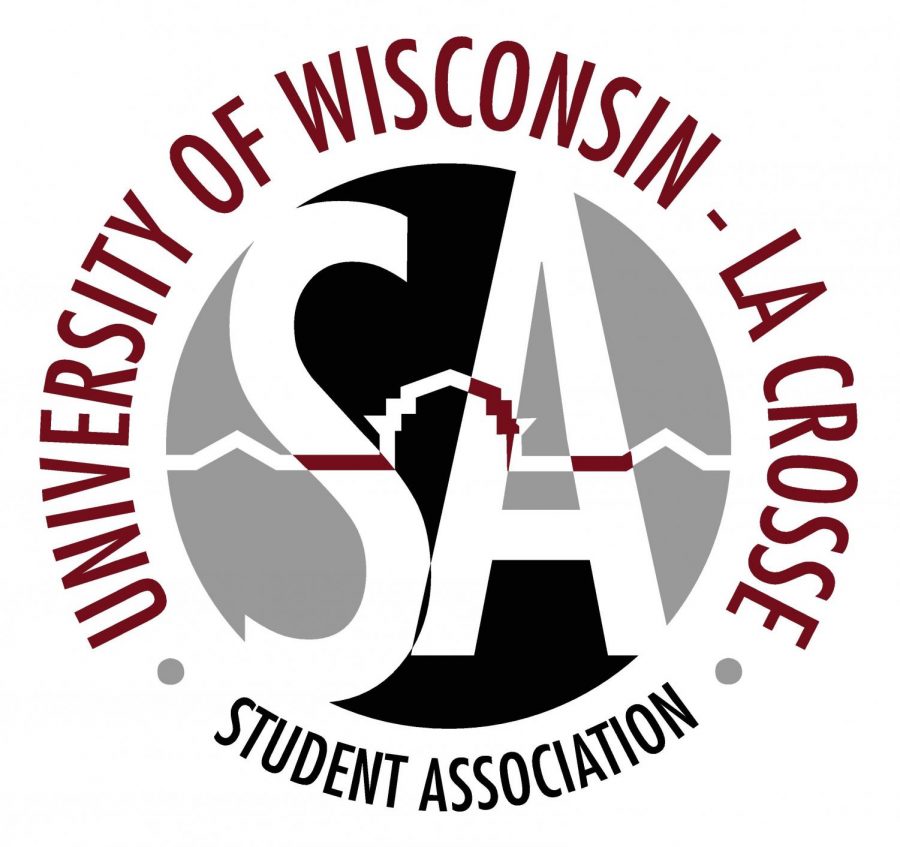Student Association discusses GENA, housing rights and a new policy on underage drinking tickets
February 28, 2020
Student Association (SA) met on Feb. 26 and welcomed James Szymalak, professor of political science public administration, discussed an incident that occurred on campus regarding hate and bias, resolutions calling for the implementation of a Grandview-Merson Neighborhood Association (GENA) neighborhood resource officer and the parent notification system, and a new policy on underage drinking tickets.
On behalf of the students he teaches, Syzmalak has made note that many are not living comfortably enough within the currently La Crosse housing plan. Syzmalak, on behalf of his executive position within Habitat for Humanity, wants to make student housing as comfortable as possible, and get completely rid of all rental horror stories.
Syzmalak plans on creating an efficacy campaign regarding these issues which will involve students and their experiences with La Crosse landlords and properties. Alongside the Tomah housing authority and Monroe county initiatives regarding this issue, La Crosse county created an overview analyzing the impediments which discuss “patterns of race, housing, and poverty; access to opportunity; and housing barriers in the region.” This list outlines whatever strategies the area agencies may take in order to improve on these issues.
Under the studies’ community participation process, the survey found that fewer than 42 percent of respondents reported that they understood their renters’ rights. Syzmalak cited three, eight impediments from the study that University of Wisconsin-La Crosse efficacy groups should focus on, which state; 3: “Poor Rental Housing Limit Access,” overlooking the overall safety of the and livability within La Crosse properties, through the use of proper educative efforts;
7: “The Human Rights Commission Continues To Clarify Its Fair Housing Role,” an overall advocacy effort in order for the Rights Commission to establish its role in order to provide a “developed process for handling fair housing complaints,” with accessible information for La Crosse residents that clearly defines the complaint process, and in what realm (locally or through an external agency) their complaint will be filed under.
Syzmalak feels passionate for keeping landlords accountable and for keeping students as safe from any neglected properties. “It’s important for students to look out for each other,” said Syzmalak.
Inclusivity director Faith Fisher discussed an incident involving a Black student overhearing a derogatory word being used with the senators. It is still unclear whether the word was directed towards the student purposefully; regardless, Fisher stated that this is something to worry about but also something that she is not surprised to come upon here at UWL. She motioned for the senators to do something if they see or hear hate in and around campus, reminding them of the work done within campus climate in order to prevent this.
With some hesitation from some senators from historically marginalized backgrounds, SA passed a resolution in support of a neighborhood resource officer for the GENA neighborhood that most UWL housing resides in. Sen. K.C Cayo said as a member of the LGBTQ+ community, that they were not in favor of this movement.
Sen. Dylan Schock voiced his support, having had personal contact with UWL chief of police Allen Hill and his efforts to better establish a personal relationship between the student body and law enforcement.
Sen. Sophia Jaume clarified that La Crosse is known for its mass-incarceration rates of Black men, and Wisconsin having the highest incarceration rates of Black men in the country.
SA discussed the parent notification system already established within UWL, which allows for university officials to contact parents in regards to write-ups or medical issues. As of this semester, this now includes any underage tickets or misdemeanors that an undergraduate student may receive both on and off-campus. SA made it clear they oppose this policy, stating that student-parent relations are a personal matter that UWL should withhold from interfering.
This being a concern for Sen. Andrew Erikson, he mentioned the issues that some students have gone through during their time living with their legal guardians, and how college life is a time to become the preferred version of yourself which should have little to no influence from anyone besides yourself. “With a damaging guardian becoming aware of an incident, it may cause a larger rift in this relationship,” said Erikson.
“We are adults here,” said Schock, which was echoed by a new senator for the College of Arts, Social Science, and Humanities (CASSH), Sen. Sydney Navoichick calling this policy “juvenile.”
Sen. Avery McLain mentioned how this policy inhibits the possibility of proper mandated reporting. “What if a young person is struggling with addiction? How does this policy benefit them in seeking help when they could be risking their collegiate career?” asked McLain.






